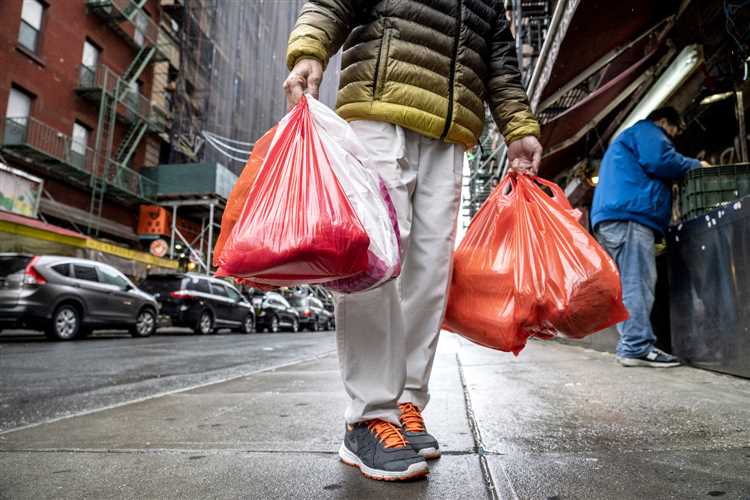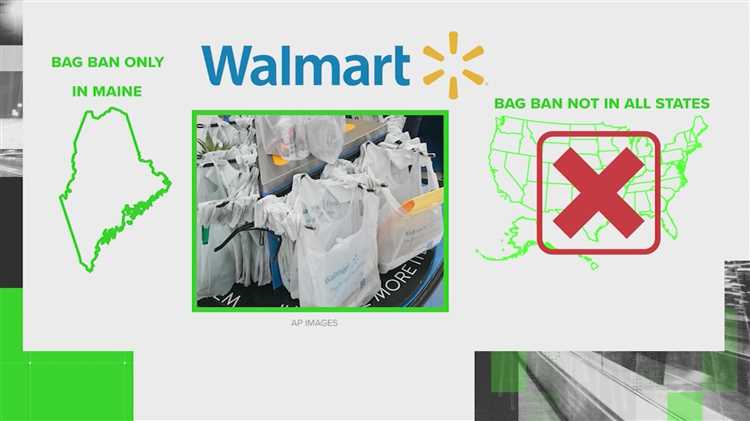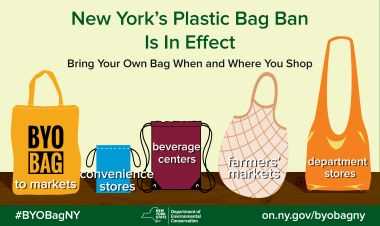
Plastic bags have long been a staple in the retail industry, providing a convenient way for consumers to carry their purchases. However, in recent years, there has been a growing concern over the environmental impact of plastic bags. With their non-biodegradable nature and tendency to pollute waterways and harm wildlife, many communities and states in the US have taken steps to ban or limit the use of plastic bags.
The implementation of plastic bag bans has sparked a nationwide debate, with proponents arguing that the bans are necessary to protect the environment and reduce waste, while opponents claim that it is an unnecessary burden on businesses and consumers. Despite the controversy, one question remains: are plastic bag refusals on the rise?
According to recent studies, the answer seems to be a resounding yes. As more and more communities implement plastic bag bans, consumers are being forced to find alternatives. Some opt for reusable bags made of more eco-friendly materials such as cotton or canvas, while others choose paper bags or simply go bag-less. This shift in consumer behavior is a strong indication that plastic bag refusals are indeed on the rise.
- Current State of Plastic Bag Usage in the US
- Impact of Plastic Bags on the Environment
- The Rise of Plastic Bag Bans
- Environmental Concerns
- Promoting Sustainable Alternatives
- Benefits of Plastic Bag Refusals
- 1. Environmental Conservation
- 2. Decreased Pollution
- 3. Energy Savings
- Challenges and Controversies surrounding Plastic Bag Bans
- 1. Economic Concerns
- 2. Effectiveness and Environmental Impact
- Future Outlook for Plastic Bag Refusals in the US
- Q&A:
- Why are plastic bags being banned in the US?
- Are there any states that have already implemented a plastic bag ban?
- What are the alternatives to plastic bags?
- Are people embracing the ban on plastic bags?
- What are the benefits of banning plastic bags?
- Is the use of plastic bags increasing in the United States?
Current State of Plastic Bag Usage in the US
The use of plastic bags in the United States has long been a topic of debate and concern. Plastic bags have been a convenient and popular option for consumers due to their durability and low cost. However, their negative environmental impact has led to increased efforts to reduce their usage and promote eco-friendly alternatives.
According to the United States Environmental Protection Agency (EPA), more than 380 billion plastic bags are used in the country each year. The majority of these bags end up in landfills, where they take hundreds of years to decompose. This has significant consequences for the environment, as plastic bags contribute to pollution and pose a risk to wildlife.
In recent years, there has been a growing awareness of the need to reduce plastic bag usage and find sustainable alternatives. As a result, several states and cities have implemented legislation to ban or restrict the use of plastic bags. For example, California became the first state to ban single-use plastic bags in 2014, and many other states have followed suit.
These efforts have been met with mixed results. While some consumers have embraced the change and are actively seeking reusable options, others have been resistant and continue to rely on plastic bags. Additionally, the effectiveness of plastic bag bans depends on various factors, including accessibility to alternatives and public awareness.
Despite the progress made, plastic bag usage remains prevalent in many parts of the country. Grocery stores and retailers still offer plastic bags to customers, although some have implemented voluntary or mandatory fees to discourage their use. The availability and popularity of reusable bags vary across regions, with some areas experiencing a significant shift towards sustainable alternatives.
Overall, the current state of plastic bag usage in the US is one of transition and change. While there has been an increased focus on reducing plastic bag consumption, there is still work to be done to fully eliminate their usage and encourage widespread adoption of eco-friendly alternatives.
Impact of Plastic Bags on the Environment
Plastic bags have a significant negative impact on the environment. Their production consumes large amounts of natural resources, including crude oil. Additionally, the manufacturing process produces harmful greenhouse gas emissions.
Once plastic bags are discarded, they often end up in landfills or are improperly disposed of, leading to pollution. These bags can take hundreds of years to decompose, occupying valuable space in landfills and posing a threat to wildlife.
Plastic bags are also a major contributor to marine pollution. When they are not properly disposed of, they can end up in rivers and oceans, disrupting marine ecosystems. Marine animals are not only at risk of ingesting plastic bags, but they can also become entangled in them, leading to injury or death.
The production and disposal of plastic bags also contribute to the plastic waste crisis. It is estimated that millions of plastic bags are used worldwide every minute, and a large percentage of them end up as litter. This plastic waste not only threatens ecosystems but also impacts human health.
Fortunately, many countries and cities around the world are taking action to reduce the use of plastic bags. Implementing bans or fees on plastic bags has proven effective in reducing their consumption. Encouraging the use of reusable bags and promoting recycling are also valuable strategies in combating the negative environmental impact of plastic bags.
In conclusion, plastic bags have a detrimental impact on the environment. Their production, disposal, and improper management can lead to pollution, harm to wildlife, marine pollution, and contribute to the plastic waste crisis. Efforts to reduce the use of plastic bags and promote sustainable alternatives are crucial in minimizing their environmental impact.
The Rise of Plastic Bag Bans
Plastic bags have long been a staple of shopping trips in the United States, but in recent years, there has been a growing movement to ban these bags altogether. This rise in plastic bag bans is driven by concerns over the environmental impact of plastic waste, as well as the desire to promote sustainable alternatives.
Environmental Concerns

Plastic bags are notorious for their negative impact on the environment. They are not biodegradable and can take hundreds of years to break down. As a result, they often end up in landfills or littering the landscape, where they can harm wildlife and contribute to pollution. Plastic bags also require significant amounts of natural resources to produce, further straining the environment.
By implementing plastic bag bans, communities aim to reduce the amount of plastic waste that is generated and ultimately ends up in the environment. These bans encourage individuals to find alternative methods for carrying their groceries and other purchases, such as reusable bags or paper bags, which are generally more eco-friendly options.
Promoting Sustainable Alternatives

In addition to addressing environmental concerns, plastic bag bans also aim to promote sustainable alternatives. Reusable bags, for example, can be made from durable materials like fabric or recycled materials. These bags can be used multiple times, reducing the need for single-use plastic bags. Some communities have even implemented incentives for individuals to use reusable bags, such as discounts at stores or rewards programs.
Furthermore, the rise of plastic bag bans has inspired innovation in the realm of sustainable packaging. Companies are now developing eco-friendly alternatives to plastic bags, such as compostable or biodegradable bags made from plant-based materials. These alternatives provide an opportunity to reduce plastic waste and lessen the impact on the environment.
Overall, the rise of plastic bag bans reflects a growing awareness and concern for the environmental impact of plastic waste. By implementing these bans and promoting sustainable alternatives, communities are taking important steps towards reducing plastic pollution and promoting a more sustainable future.
Benefits of Plastic Bag Refusals
Plastic bag refusals, or the act of choosing not to use plastic bags, have numerous benefits for both individuals and the environment. In recent years, many countries and cities around the world have implemented various policies and initiatives to reduce the use of plastic bags, recognizing the harmful impacts they have on the planet.
1. Environmental Conservation
One of the primary benefits of plastic bag refusals is the positive impact on the environment. Plastic bags are made from non-renewable resources and have a significant carbon footprint. By refusing to use plastic bags and opting for reusable alternatives such as cloth bags or paper bags, individuals can help conserve natural resources and reduce greenhouse gas emissions.
2. Decreased Pollution
Plastic bags are notorious for their negative effects on ecosystems and wildlife. When improperly disposed of, they often end up in oceans and waterways, posing a severe threat to marine life. By refusing plastic bags, individuals can help decrease pollution and protect marine habitats. Additionally, plastic bags take a long time to decompose, so by reducing their usage, we can mitigate their long-term environmental impact.
3. Energy Savings
The production of plastic bags requires a significant amount of energy. By refusing them, we can reduce the demand for plastic bag production, resulting in energy savings and a decrease in carbon emissions. This also extends to the transportation and distribution of plastic bags, as fewer bags being manufactured means fewer resources and energy needed to transport them.
In conclusion, plastic bag refusals offer numerous benefits, including environmental conservation, decreased pollution, and energy savings. By encouraging individuals and communities to opt for reusable alternatives, we can contribute to a more sustainable future and mitigate the harmful impacts of plastic bags on our planet.
Challenges and Controversies surrounding Plastic Bag Bans
The implementation of plastic bag bans has not been without its challenges and controversies. While the intentions behind these bans are to reduce the harmful impact of plastic bags on the environment, there are various factors that have caused disagreement and debate.
1. Economic Concerns
One of the main controversies surrounding plastic bag bans is the potential negative impact on businesses, particularly those in the plastic bag manufacturing industry. Critics argue that job losses and economic downturn could occur as a result of these bans. Additionally, the cost of alternative bags, such as reusable ones, may be higher, which can put a burden on low-income individuals and families.
2. Effectiveness and Environmental Impact
Another challenge is determining the actual effectiveness of plastic bag bans in reducing plastic waste. Critics argue that these bans may inadvertently lead to an increase in the use of other types of single-use bags, such as paper or thicker plastic bags, which can have their own negative environmental consequences. There is also concern that individuals may simply switch to purchasing plastic bags for other purposes, such as trash bags or pet waste bags, thus negating the intended reduction in plastic waste.
There is also debate about the overall environmental impact of the production and disposal of alternative bags. The resources required to manufacture and transport reusable bags, as well as the potential for these bags to end up in landfills after several uses, are areas of concern.
Moreover, some argue that plastic bag bans may not be the most effective solution to addressing plastic waste. They contend that a comprehensive approach, including recycling infrastructure improvements and increased education on plastic waste reduction, would be more beneficial in the long run.
In conclusion, while plastic bag bans have the noble intent of reducing environmental harm, they are not without their challenges and controversies. Economic concerns and the potential negative impact on businesses, as well as the effectiveness and overall environmental impact of these bans, pose important points for consideration and ongoing debate.
Future Outlook for Plastic Bag Refusals in the US
The movement to ban plastic bags in the United States has gained considerable momentum in recent years, and it shows no signs of slowing down. As more and more cities and states enact bans or fees on plastic bags, the future looks promising for the reduction of plastic bag usage across the country.
One of the driving forces behind the push for plastic bag bans is the environmental impact of these bags. Plastic bags are notorious for their negative effects on the environment, including littering streets and waterways, harming wildlife, and contributing to greenhouse gas emissions.
Consumers are becoming more aware of these issues and are increasingly choosing to bring their own reusable bags when they go shopping. This shift in consumer behavior has been a significant factor in reducing the demand for plastic bags and has helped to drive the implementation of bag bans.
In addition to the environmental concerns, there are also economic benefits to be gained from reducing plastic bag usage. Plastic bags are not only costly to produce, but they also require significant resources to dispose of properly. By eliminating plastic bags, cities and states can save money on waste management and reduce their overall carbon footprint.
As the movement to ban plastic bags continues to gain traction, it is likely that more cities and states will take action in the coming years. Efforts to promote reusable bags and educate consumers about the benefits of reducing plastic bag usage will also play a crucial role in shaping the future outlook.
However, it is important to note that there may be challenges along the way. Some opponents argue that bag bans unfairly target businesses and consumers, and that there are better alternatives to reducing plastic waste. These concerns will need to be addressed in order to ensure the success of future plastic bag refusals.
Despite these potential challenges, the future looks bright for plastic bag refusals in the US. With a growing awareness of the environmental impact of plastic bags and a willingness to embrace reusable alternatives, it is likely that plastic bag usage will continue to decline, leading to a cleaner and more sustainable future.
Q&A:
Why are plastic bags being banned in the US?
Plastic bags are being banned in the US due to their harmful effects on the environment. They are not biodegradable and take hundreds of years to break down. Additionally, they contribute to pollution and endanger wildlife.
Are there any states that have already implemented a plastic bag ban?
Yes, there are several states that have already implemented a plastic bag ban. California was the first state to ban single-use plastic bags in 2014, and many other states have followed suit, including New York, Hawaii, and Oregon.
What are the alternatives to plastic bags?
There are several alternatives to plastic bags, including reusable cloth bags, paper bags, and biodegradable plastic bags. Reusable bags are a popular choice, as they can be used multiple times and are more environmentally friendly.
Are people embracing the ban on plastic bags?
Yes, many people are embracing the ban on plastic bags and are actively seeking out alternatives. They understand the negative impact that plastic bags have on the environment and are making an effort to reduce their use.
What are the benefits of banning plastic bags?
Banning plastic bags has several benefits. It reduces pollution and litter, protects wildlife, conserves resources, and encourages the use of more sustainable alternatives. It also raises awareness about the importance of reducing plastic waste.
Is the use of plastic bags increasing in the United States?
According to recent studies, the use of plastic bags in the United States is actually on the decline. Many states and cities have implemented bans or restrictions on the use of plastic bags, which has led to a decrease in their overall usage. Additionally, more people are choosing to bring their own reusable bags when shopping, further reducing the need for plastic bags.